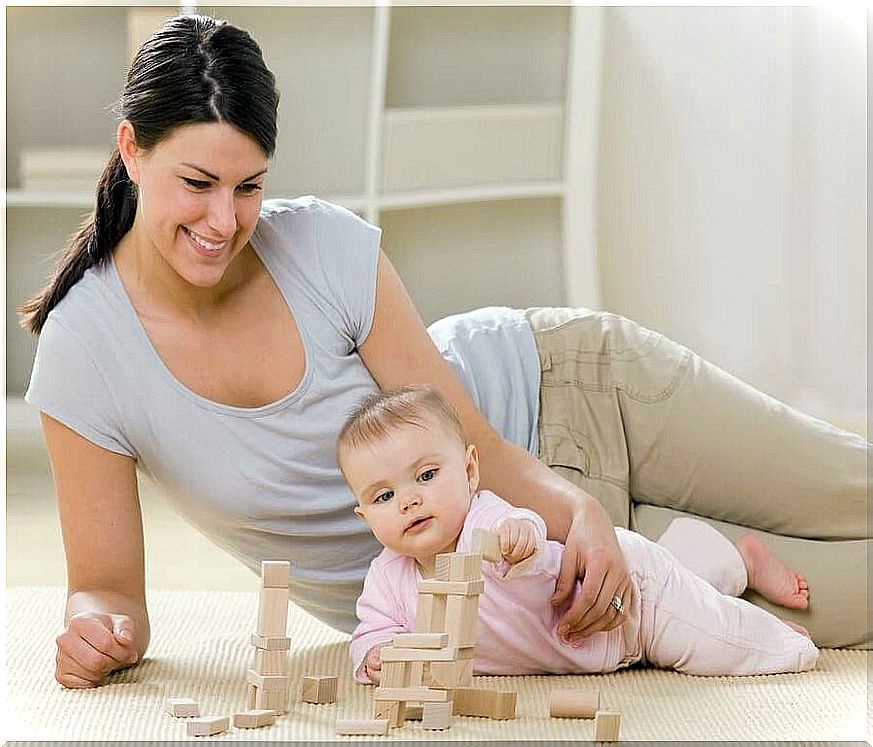The Importance Of Routines For Babies

The importance of routines will sooner or later become clear to every parent of a young child. Babies need routines to feel safe and calm in their new environment. Not only does consolidating daily routines make a child feel good, they also make life easier for the whole family.
It is important to keep in mind that during the first months of a child’s life, parents must proceed calmly and spend time getting to know the child. In this way, good habits and routines suitable for the child can be created.
The importance of routines for babies
In the early stages of his life, a child does not understand the things that are happening around him, which is why he needs to get used to doing the same things at the same time every day.
Here are a few tips to help you create a routine for your family that works for both parents and your child.
1. Show the child the difference between day and night
Young children are not yet aware of the difference between day and night. The newborn can sleep in long stretches during the day, which results in intermittent sleep at night. Teaching a child the difference between day and night is an important step toward a practical routine.
One good way to start learning is to change your baby’s clothes in the evening before going to bed and again in the morning after waking up. This shows the child when a new day begins and when night is ahead.
The home should be kept bright during the day and somewhat noisy, and vice versa at night, dark and quiet. This will help the child learn that the night is a time of sleeping and a day of playing and socializing.

2. A child’s routine is a top priority
The routine should be kept as consistent as possible, especially as the child becomes accustomed to it. A child’s routine must be a top priority for parents in order for him or her to learn to understand certain things happening at a particular time. Habits and routines also help the parent focus and maintain order during the day while meeting and taking care of the child’s needs.
Clearly, the arrival of a baby in the family makes parents ’days even busier, and it is not possible to predict every setback. We recommend that every day still accommodate outdoor activities, which may include meeting friends, for example. It is good for a baby not only to get fresh air, but also to get used to the world outside the home.
Sticking to a routine can sound challenging, especially for parents expecting their firstborn. It is worth discussing this with other parents and experts.
3. Learn to interpret the signals sent by the child
A small child doesn’t know how to talk yet, but he or she has other ways to tell about his or her feelings and needs. Parents need to learn to understand the signals sent by the child and learn to respond to them.
It is a good idea to let your baby guide the family to the routine that works best for him or her. The child tells with signals what he needs.
Learning to understand a baby doesn’t happen overnight, but requires time and patience. Initially, parents need to monitor the child closely and try to understand when he or she is hungry or tired. All the information gathered helps to create an effective routine that makes it possible to anticipate a child’s needs.
4. Adapt the routine to the age of the child
Once a somewhat predictable routine is implemented in your home, changing it can seem difficult. However, many things change as a child grows, and at the same time routines need to change.
As you grow, your child needs less daytime sleep and more play time. At about the age of six months, she begins to practice eating solid foods, which means parents have to spend even more time preparing food. Fortunately, as parents learn about their child’s needs, routine changes happen naturally.

5. Don’t expect perfection
A child’s and family routine doesn’t always work with clock accuracy. While a young child enjoys consistency and regularity, changes and surprises are impossible to avoid as the child grows.
One day, a child may not want to take a nap, eat as usual, or get out of bed at the same time as other mornings. Parental patience is key here too, and you should be prepared for unexpected twists and turns.
Once the home routine is established, a parent at home with the child should take advantage of the schedules by also reserving time for themselves to rest and take care of themselves. It can be as simple as enjoying a hot bath or a favorite TV show.









